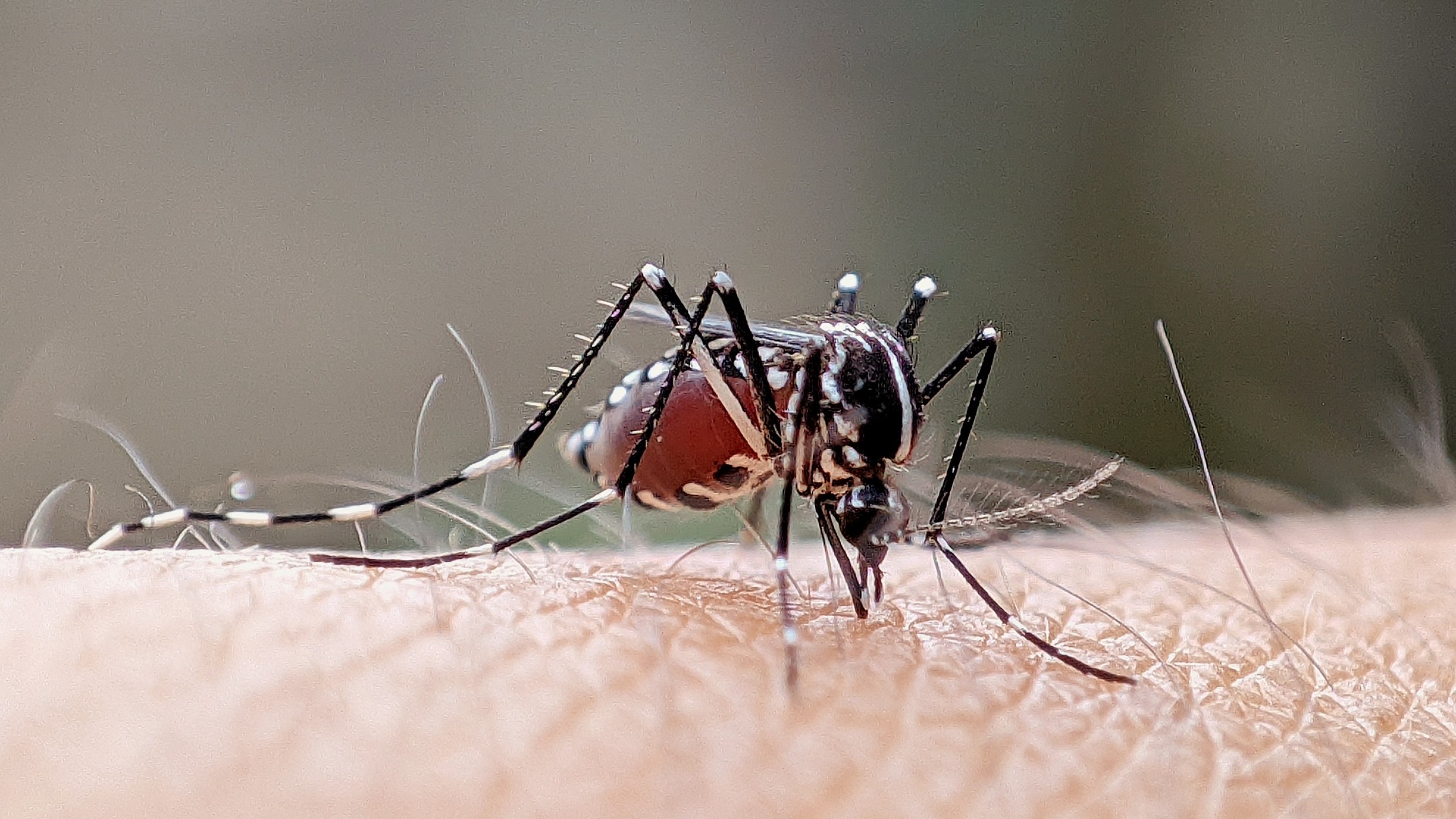Scientists release genetically modified mosquitoes to fight dengue in Brazil
Genetically modified mosquitoes are being released in Brazil to reduce the spread of the viral infection dengue fever.

Scientists in Brazil are releasing genetically modified mosquitoes into the environment to combat soaring cases of dengue fever in the country.
More than 1 million cases of the viral, mosquito-spread infection have been reported in the first two months of this year — 226% more than were reported in the same period in 2023. Various cities are in states of emergency. For example, in February, Rio de Janeiro declared the outbreak a public health emergency after the city recorded more than 42,000 cases of the disease since the start of the year, according to the Associated Press.
Almost half of the world's population lives in areas with a risk of dengue infection. In Brazil, the disease is endemic, meaning it is constantly circulating. Between 2003 and 2019, more than 11 million cases were reported in the country, with peak transmission normally occurring during the annual rainy season, from October to May. Unusually large outbreaks, however, occur roughly every three to four years.
Only 1 in 4 people who infected with the dengue virus develop symptoms of disease, which include fever, headache and nausea. These symptoms generally clear within two to seven days. However, the disease can sometimes progress and become severe, leading to hospitalization and possibly death.
There is no specific treatment available for the infection; instead, medical care aims to relieve patients' pain and maintain their vitals. The disease can't be spread directly from person to person.
Related: The skin microbiome could be harnessed as mosquito repellent, study hints
Faced with a rising number of dengue cases, health authorities in Brazil are testing alternative approaches to control the spread of the disease, in addition to rolling out a vaccine. These strategies include the use of genetically modified mosquitoes — an effort spearheaded by biotech company Oxitec.
Sign up for the Live Science daily newsletter now
Get the world’s most fascinating discoveries delivered straight to your inbox.
The company breeds male Aedes aegypti mosquitoes — the species that spreads the dengue fever virus to humans — that are genetically modified to carry a gene that kills any female offspring they spawn before the pests reach adulthood. Dengue fever is spread only through the bites of female A. aegypti mosquitoes, so releasing these modified mosquitoes into a region can help reduce the number of pests that can spread the virus to people.
The eggs of Oxitec's modified male mosquitoes are placed in boxes and are prompted to hatch with the addition of water. A. aegypti mosquitoes normally lay their eggs in stagnant water — specifically, on the inner walls of containers holding the water, such as bowls or tires. Thus, Oxitec's boxes mimic what happens in the wild.
The modified mosquitoes "complete the cycle inside these boxes in about ten days and the adult insects come out to do their work," Natalia Ferreira, Oxitec's general manager in Brazil, told Reuters. The approach can reduce A. aegypti population numbers by up to 90% in regions where the genetically modified mosquitoes are released, Ferreira told the news agency.
Oxitec is releasing these modified mosquitoes in numerous cities in Brazil, including Suzano in the state of São Paulo, which declared a state of emergency due to dengue fever in February, Reuters reported.
Brazil isn't the first country to receive Oxitec's designer pests. In 2021, for instance, genetically modified A. aegypti mosquitoes were released for the first time in the U.S., to reduce numbers of wild, disease-causing mosquitoes in the Florida Keys.
Separately, scientists have intentionally infected mosquitoes in some regions of the world, including parts of Brazil and the U.S., with a type of bacteria called Wolbachia, which reduces the mosquitoes' ability to spread dengue.
There have been concerns that these genetically modified mosquitoes sometimes produce viable offspring that can survive to pass on their genes to native insects, with unknown consequences. But so far, there's no evidence to suggest this could harm humans.
Ever wonder why some people build muscle more easily than others or why freckles come out in the sun? Send us your questions about how the human body works to community@livescience.com with the subject line "Health Desk Q," and you may see your question answered on the website!

Emily is a health news writer based in London, United Kingdom. She holds a bachelor's degree in biology from Durham University and a master's degree in clinical and therapeutic neuroscience from Oxford University. She has worked in science communication, medical writing and as a local news reporter while undertaking NCTJ journalism training with News Associates. In 2018, she was named one of MHP Communications' 30 journalists to watch under 30. (emily.cooke@futurenet.com)










